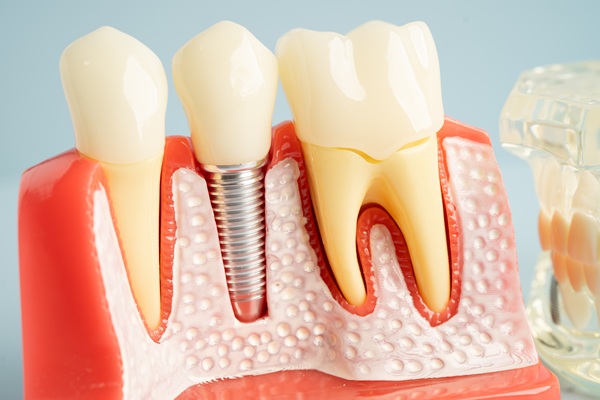Bone and Gum Grafting Before Dental Implant Placement

Getting approval for dental implants is the first step in the process. Anyone interested in dental implants must undergo a consultation, examination, and assessment to be a viable candidate for the surgical process. Since an implant is surgically inserted into the jawbone, the patient needs to have sufficient bone and be free of gum disease. Read on to learn more.
About implant placement
Learning about how a dental implant works is important when considering implants as your tooth replacement option. A dental implant is surgically inserted into your jawbone, so you must have a sufficient amount of jawbone, as this supports the osteointegration process. In addition, because implant placement requires dental surgery, your mouth must be healthy, meaning there must be no gum disease.
The bone grafting process
The bone grafting process replaces any lost jawbone to regenerate a new jawbone. It does not matter whether bone loss is due to tooth decay or experiencing some trauma or injury. However, bone grafting is necessary when insufficient jawbone mass is available to insert an implant successfully. Even though performing a bone grafting procedure will add more time to the dental implant placement, many dental patients still choose to undergo the procedure.
While the bone grafting process is not difficult, it will take a few months for patients to recover from this initial dental surgery. The process starts when a dental professional inserts bone directly into the jawbone, which can be taken from the patient’s body or from another source. Once this additional bone is placed, it is up to the patient to take care of the area to ensure proper healing. Once the area is healed, the dental implant can be placed into the jawbone.
The gum grafting process
Patients experiencing issues with their gums or have been diagnosed with shrinking gums must deal with both aesthetic and functional problems. Gum grafts are an option for patients who have gum problems and are interested in getting one or more dental implants placed in their mouths. Gum grafts work when a dental professional removes some of the healthy gum tissue from the roof of the mouth and uses it to help build up areas in the mouth that are experiencing gum problems.
Three types of gum grafting procedures are available: connective tissue grafts, free gingival grafts, and lateral grafts. Before a patient undergoes gum grafting surgery, the dental professional will give them all the information they need to know before undergoing the procedure.
Want to find out if you are approved?
The dental implant approval process is not a difficult one. All you need to do is contact us now to schedule a consultation appointment at a convenient time. During this initial appointment, our experienced dental professional will thoroughly evaluate your mouth to determine whether you are indeed a good candidate for dental implants. Ready to find out if you are approved for this popular tooth replacement option?
Are you considering getting a dental implant in the Newnan area? Get more information at https://www.mynewnandentist.com.
Check out what others are saying about our dental services on Yelp: Dental Implants in Newnan, GA.
Related Posts
No other oral restorations are like dental implants when it comes to replacing missing teeth. These are the only solution for missing teeth that replaces the roots of teeth. These roots serve an important purpose, keeping the jaw stimulated and healthy.When missing teeth are not replaced with dental implants, the person's jaw will begin to…
Professional dental care is an important part of keeping your teeth shiny and healthy. However, routine dental care at home can make the results last longer. Daily habits in between regular dental appointments support your long-term oral health and ensure a bright, confident smile.Consistent and effective daily cleaning is a foundation of routine dental care.…
Dental veneers enhance the smile with a blend of beauty, efficiency, and durability. These thin shells bond to the front of teeth to correct chips, stains, gaps, and minor misalignment with precision. But like any dental treatment, there are some trade-offs to consider. Weighing the pros and cons of veneers can help patients decide whether…
Thinking about choosing implant-supported dentures to replace your missing teeth? This type of denture offers many benefits, which is why this denture choice has become so popular. However, properly caring for dentures supported by implants is necessary so they will last for many years.While there are many different types of denture choices to choose from,…
